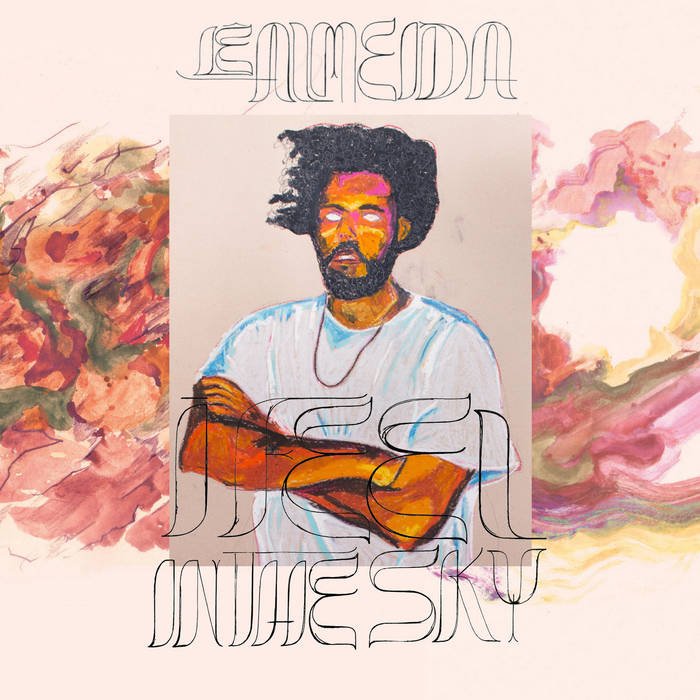by Selina Yang (@y_aniles)
I Feel In The Sky was wrung out of rare quiet moments. Lê Almeida, the Rio de Janeiro-based musician and producer, is on his ninth album in a prolific career. The album was first sketched throughout Almeida's life on the road touring with his band Oruã in 2018, following his father’s death. When touring, people and places take on a transient nature. Region by region passes by, new day, new city. Each new inspiration, they can only be experienced for the first time once. Almeida, in documenting through music, grips onto these fresh-eyed moments with cherishment. Within the raw serenity, there is an urgency to capture its fleeting nature. What results from these five years of sketches is Lê Almeida’s richest work, an experimental memoir rooted in free jazz and lo-fi psychedelic rock.
The album’s production features 21 different instrumentalists, of which Almeida spearheads guitar, bass, drums, and keyboard. His previous discography is tinted with the rebellious energy of garage rock, but on this record, Almeida leans heavily into jazz improvisation and cavernous layering. The production is naturalistic, recreating the aura of an intimate live performance. There is a strong sense of depth to the mix, produced by Almeida himself. The softest drip of a flute note feels like it can be heard from miles away. On “Baile de Cinema,” its delicate mixing accents the sharp synth whistles, while letting the bass reverberate across the instrumentation like rain. Listeners find themselves in a cavernous sonic landscape. Almeida’s silky voice takes the forefront, singing in tender fragments about dreams of being reborn, and the gentle strength of optimism.
In the orchestral opener, “I Feel In The Sky,” the orchestral loop is juxtaposed with the technological retrograde. As the record skips, the violin sample becomes surprisingly percussive, evolving into a proto-hip-hop groove. MF DOOM would be proud. The central drone of “Tafeta” recalls the work of Ravi Shankar, by way of ‘60s psychedelic rock’s inspiration from Indian classical music. Further drawing from the ‘60s is the groove of Tropicalia, heard through “Bicho Solto”’s warm guitar rhythm. When the downtempo bass is combined with synth flourishes, the album steers towards trip-hop as well. Genres are endlessly passed through each other. I Feel In The Sky, though serene, is constantly fidgety. It’s alive, constantly trying to crawl its way out of a comfort zone.
On “Missão de Ouvir,” Lê Almeida calls for listeners to not let pain impose on the “mission of listening” (que desencadeou na dor e no outro / não impõe a missão de ouvir). The “mission of listening” takes nothing for granted. Each influence is broken down to their respective inspirations, whether that be a tradition, place, or person. Scenes of peace are preserved through music; the original moments individual to Almeida’s time on the road. However, with different instrumentalists and attentive listeners adding their own memories, peace becomes timeless. Through Almeida's humility in letting new experiences recontextualize personal growth, I Feel In The Sky expands his individual interpretation into a community experience.

